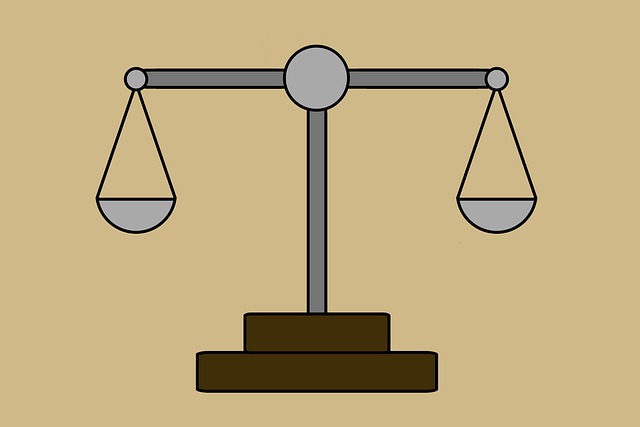Probate is a legal process managing and resolving an individual's estate after death, ensuring will execution or law adherence. It involves complex tasks like asset valuation, debt repayment, tax handling, and conflict resolution. Engaging professional legal services guarantees smooth navigation of these challenges, offering tailored asset distribution guidance to fulfill the deceased's wishes while minimizing legal complications. This guidance begins with thorough asset identification, prevents disputes, ensures fairness, and maintains estate integrity. Expert legal support is crucial for probate cases, facilitating will validation, asset identification, tax management, and adhering to distribution preferences. Post-probate, legal teams provide dedicated assistance in estate administration, personalized asset distribution guidance, and tax responsibility management, simplifying the process and allowing clients to focus on their future with peace of mind.
In the intricate world of estate administration, comprehensive legal services for probate cases are indispensable. This article delves into the multifaceted aspects of probate, offering a detailed guide for families navigating this emotional and complex process. From understanding the intricacies of asset identification and valuation to receiving expert advice on estate planning strategies, each step is crucial for efficient asset distribution guidance. We explore unique challenges, emphasize the vital role of legal representation, and provide post-probate support for seamless estate administration.
- Understanding Probate: The Process and Its Legal Implications
- Asset Identification: Locating and Valuing Assets for Efficient Distribution
- Guidance in Estate Planning: Strategies for Optimal Asset Allocation
- Navigating Complexities: Addressing Unique Challenges in Probate Cases
- Legal Representation: The Role of Lawyers in Ensuring Fairness and Compliance
- Post-Probate Support: Administering Estates and Distributing Assets Effectively
Understanding Probate: The Process and Its Legal Implications

Probate is a legal process that involves administering and settling an individual’s estate after their death, ensuring their wishes are carried out according to their will or the applicable laws. It’s crucial to understand that this process has significant legal implications, particularly when it comes to the distribution of assets. The probate court oversees the valuation and division of assets, paying debts and taxes, and ensuring all legal formalities are met before any asset distribution guidance can be implemented.
This intricate process requires meticulous attention to detail, especially considering the potential tax liabilities, inheritance disputes, or complex financial matters that may arise. Engaging a professional with comprehensive legal services for probate cases ensures these challenges are navigated smoothly, providing clear asset distribution guidance tailored to the deceased’s wishes and minimizing potential legal complications.
Asset Identification: Locating and Valuing Assets for Efficient Distribution

In probate cases, efficient asset distribution is pivotal for ensuring a smooth transition for the beneficiaries. The first critical step in this process is asset identification, which involves locating and valuing all assets belonging to the deceased. This meticulous task requires comprehensive knowledge of financial records, real estate holdings, investments, and personal belongings. Professional legal services play a crucial role here by providing expert guidance to navigate through complex financial landscapes, ensuring no asset goes unnoticed or undervalued.
Effective asset distribution guidance is essential to prevent disputes among beneficiaries and ensure fairness. Legal professionals employ specialized tools and techniques to accurately assess the value of assets, facilitating an equitable division according to the deceased’s wishes and applicable laws. By leveraging their expertise, they can help families focus on grieving and honoring their loved one’s legacy while maintaining the integrity of the estate.
Guidance in Estate Planning: Strategies for Optimal Asset Allocation

Estate planning is a crucial aspect of ensuring your assets are distributed according to your wishes after your passing. With expert legal guidance, individuals can create comprehensive plans that cater to their unique circumstances and goals. Asset distribution guidance plays a vital role in this process, offering strategies for optimal asset allocation to protect and preserve wealth.
By consulting with experienced attorneys, clients gain insights into various tools and techniques, such as trusts, will provisions, and tax-efficient investment options. These legal professionals help navigate the complexities of estate planning, ensuring that assets are managed efficiently while adhering to legal requirements. This proactive approach allows individuals to take control of their financial future, fostering peace of mind knowing their wishes will be respected.
Navigating Complexities: Addressing Unique Challenges in Probate Cases

Probate cases often present unique challenges that require specialized legal expertise. From intricate estate planning to managing diverse assets, navigating the complexities can be daunting for many. These cases involve delicate matters, such as determining the validity of wills, identifying and valuing assets, and ensuring proper distribution according to legal requirements and personal wishes.
Professional legal services play a pivotal role in addressing these challenges. They provide asset distribution guidance, assisting clients in understanding their rights and obligations. Skilled attorneys can help simplify complex procedures, offer clarity on tax implications, and ensure that the estate is administered efficiently and in accordance with the law. This expertise is crucial for achieving a fair and timely resolution, allowing families to move forward during an emotionally demanding period.
Legal Representation: The Role of Lawyers in Ensuring Fairness and Compliance

Legal representation plays a pivotal role in probate cases, ensuring fairness and compliance throughout the process. Probate law can be complex, involving intricate rules and regulations regarding asset distribution. This is where lawyers step in as guides, providing crucial asset distribution guidance to clients navigating their options. They help interpret laws, identify potential pitfalls, and ensure that all necessary paperwork is accurately completed and filed.
Attorneys also advocate for their clients’ interests, protecting them from unfair practices or mistakes that could lead to legal complications later. Their expertise ensures the orderly transition of assets as per the deceased’s wishes, promoting peace of mind for families already dealing with emotional challenges.
Post-Probate Support: Administering Estates and Distributing Assets Effectively

After the probate process, which can be emotionally taxing and legally complex, our comprehensive legal services extend to post-probate support. We assist in the careful administration of estates, ensuring that all legal and financial aspects are managed efficiently. Our experienced attorneys provide asset distribution guidance, helping beneficiaries understand their entitlements and facilitating a smooth transition of assets.
We understand that every estate is unique, and we tailor our services accordingly. This includes managing tax obligations, preparing final accounts, and ensuring compliance with relevant laws. By offering this level of support, we aim to alleviate the stress associated with probate, allowing individuals to move forward with their lives while knowing their affairs are in capable hands.






